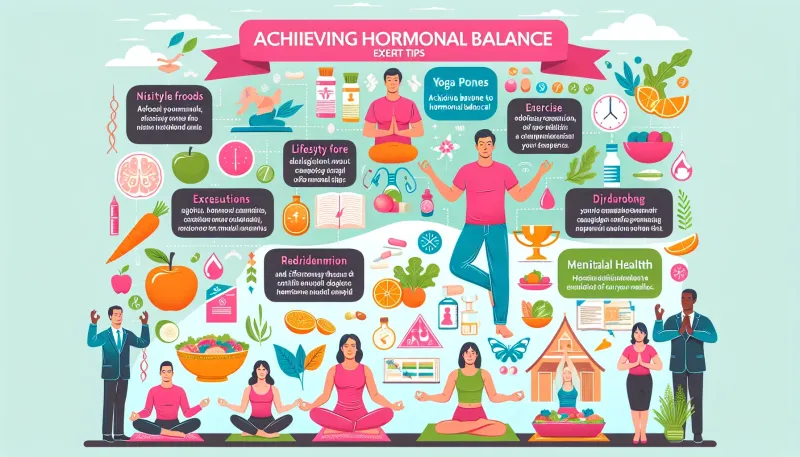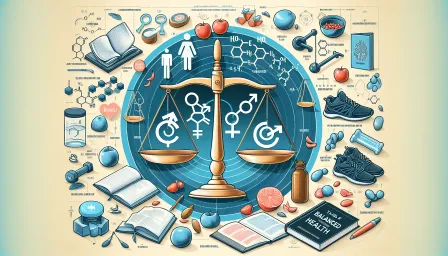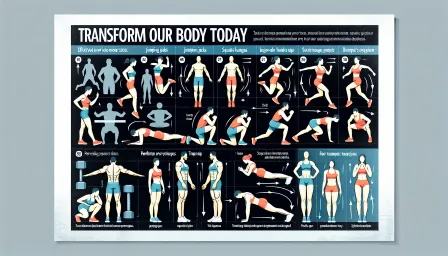Achieve Hormonal Balance and Health: Expert Tips and Tricks

Discover expert tips and tricks to achieve hormonal balance and health. Learn how to address hormonal imbalances and improve overall well-being with practical advice.
Hormonal balance is crucial for overall health and well-being. Hormones are chemical messengers that regulate various bodily functions, including metabolism, mood, and reproductive health. When hormones are imbalanced, it can lead to a range of health issues such as fatigue, weight gain, mood swings, and more. In this article, we'll explore expert tips and tricks to help you achieve hormonal balance and improve your health.
Understanding Hormones and Their Functions
Before diving into the tips for balancing hormones, it's essential to understand the primary hormones and their functions:
- Estrogen: Regulates female reproductive health, menstrual cycles, and mood.
- Testosterone: Controls male reproductive health, muscle growth, and energy levels.
- Insulin: Manages blood sugar levels and energy storage.
- Cortisol: Known as the stress hormone, it regulates the body's response to stress.
- Thyroid Hormones: Regulate metabolism, energy levels, and growth.
Symptoms of Hormonal Imbalance
Recognizing the signs of hormonal imbalance is the first step in addressing the issue. Common symptoms include:
- Persistent fatigue
- Unexplained weight gain or loss
- Irregular menstrual cycles
- Mood swings and irritability
- Sleep disturbances
- Changes in libido
Expert Tips for Achieving Hormonal Balance
1. Maintain a Balanced Diet
A balanced diet rich in whole foods can help regulate hormone levels. Incorporate the following into your diet:
- Healthy fats: Avocados, nuts, seeds, and olive oil.
- Protein: Lean meats, fish, legumes, and plant-based protein sources.
- Fiber: Fruits, vegetables, and whole grains.
- Leafy greens: Spinach, kale, and Swiss chard are rich in essential nutrients.
2. Manage Stress Effectively
Chronic stress increases cortisol levels, leading to hormonal imbalances. Implement stress management techniques such as:
- Meditation and mindfulness practice
- Regular physical activity
- Deep breathing exercises
- Connecting with loved ones and maintaining healthy relationships
3. Get Adequate Sleep
Quality sleep is vital for hormone regulation. Aim for 7-9 hours of sleep per night and maintain a consistent sleep schedule. Create a restful environment by:
- Keeping the bedroom cool and dark
- Avoiding screens before bedtime
- Establishing a relaxing pre-sleep routine
4. Exercise Regularly
Exercise helps regulate hormones such as insulin and cortisol. Incorporate a mix of aerobic exercises, strength training, and flexibility workouts. Ensure to listen to your body and avoid overtraining.
5. Stay Hydrated
Adequate hydration supports metabolic functions and hormonal balance. Aim to drink at least 8 cups of water daily and more if you are physically active.
6. Avoid Toxin Exposure
Exposure to environmental toxins and endocrine disruptors can affect hormonal health. Reduce toxin exposure by:
- Using natural and organic personal care products
- Avoiding plastic containers for food storage
- Eating organic foods to reduce pesticide intake
Natural Supplements for Hormonal Health
Certain supplements can support hormonal balance and overall health. Always consult with a healthcare professional before starting any supplement regimen:
- Omega-3 Fatty Acids: Supports hormone production and reduces inflammation.
- Magnesium: Helps regulate cortisol and insulin levels.
- Vitamin D: Essential for hormone regulation and immune function.
- Probiotics: Maintain gut health, which is linked to hormone balance.
- Adaptogens (e.g., Ashwagandha, Rhodiola): Helps the body manage stress and support adrenal function.
When to Seek Professional Help
If you suspect a hormonal imbalance and self-care strategies are not providing relief, it’s essential to seek professional help. A healthcare provider can perform tests to diagnose hormonal imbalances and recommend appropriate treatments, such as hormone replacement therapy (HRT) or other medical interventions.
Conclusion
Achieving hormonal balance is key to maintaining overall health and well-being. By following expert tips such as maintaining a balanced diet, managing stress, getting adequate sleep, and incorporating regular exercise, you can support your hormonal health. Additionally, staying hydrated, avoiding toxins, and considering natural supplements can further enhance your efforts. If necessary, don't hesitate to seek professional help to address any significant hormonal concerns. Prioritize your health and take the necessary steps towards achieving hormonal balance and a healthier, happier life.



























